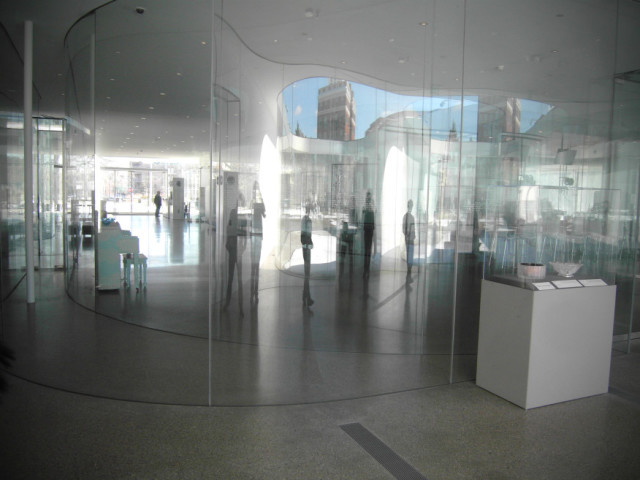Four Big Questions Guiding Material Innovation in Architecture
Emerging issues around advances in material technology for construction were front and center at the Adaptive Architectures and Smart Materials Conference in Chicago earlier this month.
Conferences about architectural materials are largely consensus-based events. Organized by topic, lecture panels tend to reinforce agreed-upon themes such as the benefits of low-embodied energy or the anticipated proliferation of responsive materials. Yet at the Adaptive Architectures and Smart Materials Conference, held earlier this month in Chicago, debate was privileged over consensus with regard to material approaches in design. After all, the burgeoning field of material technology is ever more complex, diverse, and uncertain, and requires architects to engage its many challenging themes in meaningful ways.
Hosted by Harvard University’s Graduate School of Design on the eve of the Chicago Biennial, the annual alumni-focused event featured two days of lectures and a day of local architecture tours. Conference organizer Eric Höweler, AIA, a principal at Boston-based Höweler + Yoon Architecture and an assistant professor of architecture at Harvard, called the speaker lineup a “fantasy football team” of thought leaders in architecture and engineering. And although the assemblage of experts found agreement on many topics during the event, the most memorable moments exposed conflicting opinions and unresolved questions about building technology and design approaches. Below are four points of divergence that emerged at the conference and stand to influence future applications of material technologies in architecture.
(Read more) Via architect magazine.com
